Politics
Despite Donald Trump’s claims, his gag order holds up against the Constitution
The First Amendment protects speech, but Americans don’t have a right to speech that may cause harm.
That’s why former President Donald Trump is still not allowed to speak about prosecutors, individual jurors and court staff – or their families – involved in his New York state hush money trial, a New York appeals court determined on Aug. 1, 2024.
Trump will be sentenced in New York on Sept. 18, following his May 2024 conviction on 34 different felony counts for falsifying business records.
Judge Juan M. Merchan first imposed the gag order on March 26, just days before the hush money trial was scheduled to begin. Merchan cited Trump’s public attacks on court personnel and witnesses, which “posed a significant threat to the integrity of the testimony of witnesses and potential witnesses.”
During the course of the spring 2024 New York trial, Trump was repeatedly fined thousands of dollars by Merchan for violating the gag order. Among those violations, Trump attacked his former lawyer Michael Cohen, a star witness in the case, as a “disgraced attorney and felon.” Trump also referred to the jury selection process as biased and unfair, saying that they are “lying to the Judge in order to get on the Trump Jury.”
Trump, through his surrogates, continues to complain that the gag orders are unconstitutional and violate his First Amendment right to free speech. Steven Cheung, a Trump campaign spokesperson, labels them “blatantly un-American.”
I am a scholar of the First Amendment and have written a user’s guide to it: “When Freedom Speaks.”
Let’s be clear: There is no constitutional right to cause harm, even when one is engaging in political speech. When speech is used as a weapon to terrorize, incite violence or undermine democratic principles, it can be stopped and even punished.
I believe the gag orders imposed on Trump are constitutional. They are narrowly tailored so that they provide ample opportunity for him to exercise his First Amendment right to speak.

The limits of free speech
The First Amendment creates a safe space to speak without fear of government interference. Statements about people’s politics, religion or values – whether spoken in polite discourse, shouted or laced with profanity, or even demonstrated by torching the flag – are shielded from government efforts to repress or silence them.
Words, of course, can frighten, outrage and insult. The First Amendment provides ample protection for someone who wants to express anger, frustration and even hate through words, instead of violence. Tolerance for discord is built into the very fabric of the First Amendment.
Time and time again, courts rely on the default position that speech should be protected. Political speech enjoys the most robust protection offered by the First Amendment because it is an essential element of a democracy.
In fact, constitutional protection is assumed once it is established that the speech in question is political. While a clash of views might create anxiety and disharmony, it is part of how a democracy works.
Restraining, repressing or silencing political speech is contrary to First Amendment principles and is constitutionally acceptable only under the most limited circumstances: when the government has an authoritative and credible responsibility to protect citizens.
Using words that terrorize and cause the target to fear for life and limb is illegal.
Harassment, or any other kind of persistent and pervasive language that interferes with an individual’s employment or Education, is illegal.
Illegal activity cannot become constitutionally protected speech simply because the activity was intended to communicate a message.
Trump’s words incite fear
While Trump does not lose his First Amendment rights at the courthouse door, neither he nor anyone else may use them as a weapon to harm the judicial process.
Criminal defendants can portray the judicial system as rigged and prosecutors as politically motivated, but they cannot intimidate jurors, court workers or witnesses.
It is the job of the jury, not the accused, to assess witness character and truthfulness. Trump’s comments that the jury is composed of “undercover liberal activists” undermines the integrity of the process.
Trump’s words also might have contributed to the fear that potential jurors expressed about serving. At least one witness voiced fear of exposure and retribution.
How free speech arguments stand up to the Constitution
While the First Amendment protects all kinds of speech, whether civil or hateful, physical or verbal attacks that cause harm to individuals or institutions cannot be transformed into protected speech simply because they are spoken for a political purpose.
I believe Trump’s gag order is crafted narrowly and without bias so that it can withstand a constitutional challenge.
-
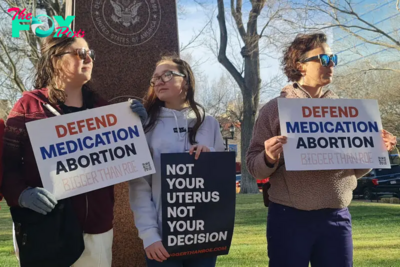
 Politics5h ago
Politics5h agoHow the Biden Administration Protected Abortion Pill Access—and What Trump Could Do Next
-

 Politics5h ago
Politics5h agoWhy Trump’s Tariffs Could Raise Grocery Prices
-

 Politics16h ago
Politics16h agoThe First Trans Member of Congress Expected Pushback Like Mace’s Bathroom Rule
-
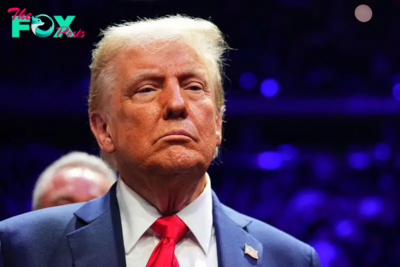
 Politics16h ago
Politics16h agoNew York Prosecutors Oppose Dismissing Trump’s Hush Money Conviction
-

 Politics21h ago
Politics21h agoWhite House Christmas Tree Is a Symbol of Resilience for Hurricane-Hit North Carolina Farms
-
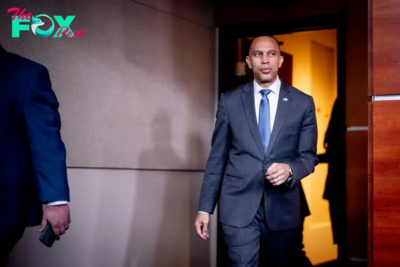
 Politics1d ago
Politics1d agoHakeem Jeffries Wins Reelection as House Democratic Leader Despite Party’s Losses
-
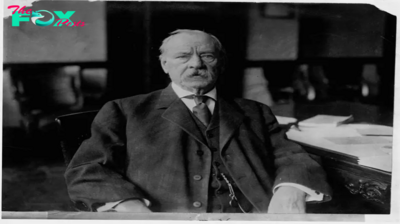
 Politics1d ago
Politics1d agoHow Grover Cleveland’s Grandson Feels About Donald Trump Becoming the Second U.S. President to Serve Nonconsecutive Terms
-
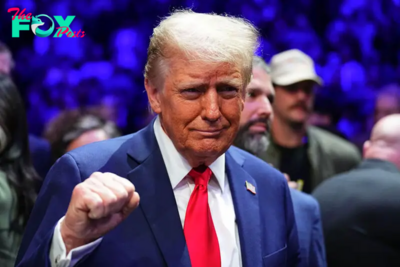
 Politics1d ago
Politics1d agoAs Trump Seeks Mass Deportations, Workplace Raids May Not Help Much





















